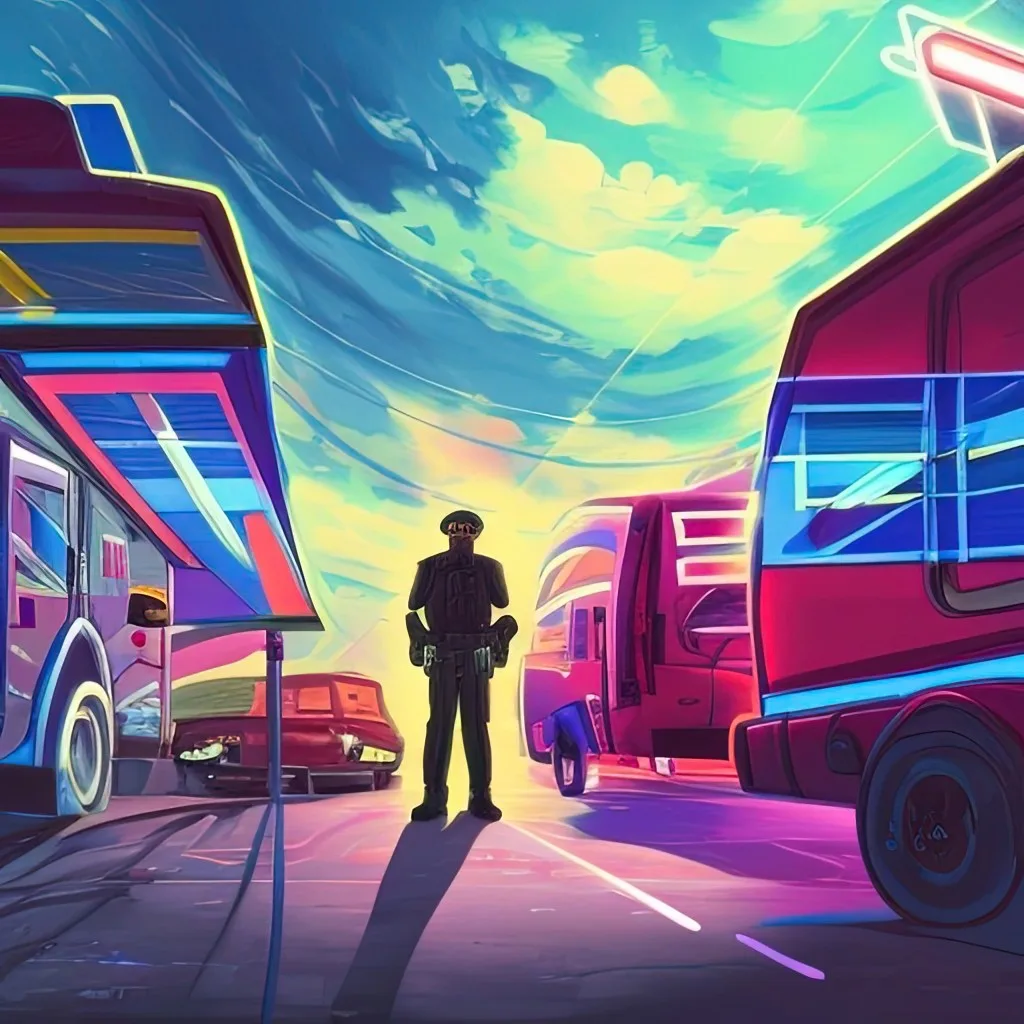We’ve seen a handful of RVers committing accidental crimes during our adventures. While these travelers mean well, they’re simply ignorant of the laws.
However, if you’re not careful, this can land you in hot water with the police and your insurance company.
If you want to ensure you’re on the right side of the law, avoid committing any of the five accidental crimes we’ll share with you today!
Let’s get started!
What Are Accidental Crimes?
Not all criminals are aware when they’re up to no good. Accidental crimes where the individual’s intent isn’t to break the law happen all the time.
For example, when going through the self-checkout lane, you may forget to scan an item in your shopping cart. Not seeing something in the bottom of your cart meant you weren’t intentionally trying to walk out of the store without paying for it. However, it’s a very different situation than if you were to place a candy bar or two in your pocket before walking out the store’s door.
Other times, you may be unaware of how laws differ from state to state. In some cases, rules and regulations can vary between cities.
Can You Accidentally Commit a Crime?
Unfortunately, people commit accidental crimes all the time. Even if you’re aware of the laws, it’s easy to commit a crime accidentally. As we mentioned earlier, forgetting to scan an item in your shopping cart is incredibly easy. You’re technically stealing the item by walking out of the store without paying for it.
Accidental crimes are usually minor criminal offenses. You’re probably not going to “accidentally” commit a felony. A judge, jury, or law enforcement is more likely to dismiss a “lesser” offense than a felony. Calling a serious crime an accident isn’t to sit well with a judge or jury, so you might want to think of a better defense.
What Happens If You Commit a Crime Accidentally?
As with many legal matters, what happens when you accidentally commit a crime varies based on several factors. For starters, your attitude can play a significant role in whether or not you’re charged.
You’re likely to get punished if you have a bad attitude or show no remorse for your actions. However, law enforcement or a judge may extend grace to you if you are genuinely apologetic and regretful for not being aware of an ordinance. This is typically case-by-case and is never a 100% guarantee.
Being ignorant of the law isn’t typically an excuse in most circumstances. You are responsible for being aware of the rules and regulations related to the activity you’re engaging in. Do your part to educate yourself, especially if you could face serious consequences.
Pro Tip: Before you open your RV door, make sure you know whether or not Police Need a Warrant to Search Your RV.

5 Accidental Crimes RVers Commit
While you may think you’re a law-abiding RVer, a handful of accidental crimes are easy to commit. There’s a good chance you’ve been on the wrong side of the rules a time or two and have been guilty of these offenses.
Speeding
Speeding is something that RVers and many other drivers regularly do, but it’s illegal and dangerous. It’s easy to get in a hurry to get to a campsite or get home and unpack after an adventure. During these moments, you may push the pedal further toward the floorboard than you usually would.
Many states have specific speed limits for any vehicles towing a trailer. In California, vehicles towing a trailer must not exceed 55 mph. For some people, it’s to go that slow on the highway. But you’ll need to get used to it because it’s the law. Don’t find yourself talking to a state trooper because you have a lead foot.
Exceeding Towing Capacity
The towing capacity of a vehicle isn’t a suggestion or recommendation from the manufacturer; it’s the legal limit for that vehicle. We’ve seen far too many drivers pushing boundaries and exceeding their vehicles’ capabilities by towing large trailers they simply can’t handle.
Your vehicle may be able to tow a tremendous amount of weight, but you also need to know it can stop it. Not only is exceeding the towing capacity of your vehicle illegal, but it’s hazardous. You increase the risk of trailer sway and lose your ability to control your vehicle and the trailer.
You could find yourself in a serious legal situation if you are in a wreck while towing a load that exceeds your vehicle’s towing capacity. Your insurance company could deny any claims even if it was an accidental crime. You may be financially responsible for all repairs and medical bills associated with the incident.
Improper Storage
Many people buy RVs and don’t consider local rules and ordinances. However, some homeowner associations and city codes may prohibit storing a recreational vehicle in the driveway or anywhere visible from the road. These owners must keep their campers elsewhere if they want to be legal.
Unfortunately, there’s little you can do about this. If you live in an area that prohibits storing an RV at your residence, you’ll need to pay for storage elsewhere. This can get incredibly expensive and easily costs $130 to $170 per month, depending on the size of your rig and the type of storage you want.
Some new RV owners aren’t aware of these rules and regulations until it’s too late. They may feel proud of their rig sitting in the driveway until they receive a letter informing them that they’re violating local codes.

Using Their RV As a Residence
RV life has become trendy lately, and many people park on land they own. However, while you may be able to live comfortably in your new rig, it’s not always legal. Some areas classify motorhomes differently and don’t consider them permanent dwellings. Local ordinances may require a separate structure that meets specific standards.
We’ve heard several stories of individuals getting comfortable in their RV on their land, only to have a visit from the local code enforcement after a week or two. You may own the property, but you must still follow the local rules and regulations to avoid legal troubles.
If you plan to park your RV on land you own, we strongly suggest you verify any local rules and regulations before getting too far. If not, you could make a significant financial mistake and deal with legal headaches.

Violating Road Restrictions
One of the first things Rvers realize is that not all areas are as friendly to their needs as others. However, some laws directly affect motorhomes. Unfortunately, people accidentally break these rules from time to time. Just because you get away with it a time or two doesn’t mean it’s legal or guaranteed you won’t get pulled over next time.
Some standard road rules include height, weight, and length restrictions. These typically are put in place to avoid you and your RV finding yourself in difficult or impossible situations. You could risk seriously damaging your vehicle if you don’t consider these legal constraints.
In addition, you also have to consider propane restrictions. While some tunnels require you to turn off the propane, others prohibit bringing it at all. If you pull your motorhome through them, even accidentally, you’re breaking the law and committing a crime.
Pro Tip: One RV law you must know is that You Can’t Exceed This Height on the Interstate.

What Should I Do If I Accidentally Commit a Crime?
If you accidentally commit a crime, you need to do whatever you can to rectify the situation. Assuming no one was hurt and you didn’t cause any damage, you may be able to apologize for the inconvenience and move on.
In the situation we discussed earlier, the self-checkout lane, you may need to pay for the item you accidentally forgot to scan. However, the most important thing you need to do is handle the entire situation like an adult. Taking responsibility for your actions, whether legal or not, can help resolve the problem.
Unfortunately, your options may be limited if you damage someone’s property or if someone is hurt due to your actions. In these situations, you may face legal consequences regardless of how apologetic you are about the situation.
Know the Law and Avoid Accidental Crimes
You must know and understand the laws that apply while you’re RVing. Ignorance isn’t typically a good enough excuse for a judge or jury to let you go. It’s your responsibility to know the rules that pertain to you.
If you travel with your rig through multiple states, you’ll want to brush up on laws unique to different parts of your journey. This can help you avoid legal troubles during your adventures. You don’t want accidental crimes to throw a wrench in your travel plans.
Discover the Best Free Camping Across the USA
To be honest with you, we hate paying for camping. There are so many free campsites in America (with complete privacy).
You should give it a try!
As a matter of fact, these free campsites are yours. Every time you pay federal taxes, you’re contributing to these lands.
Become a FREE CAMPING INSIDER and join the 100,000 campers who love to score the best site!
We’ll send you the 50 Best Free Campsites in the USA (one per state). Access the list by submitting your email below: